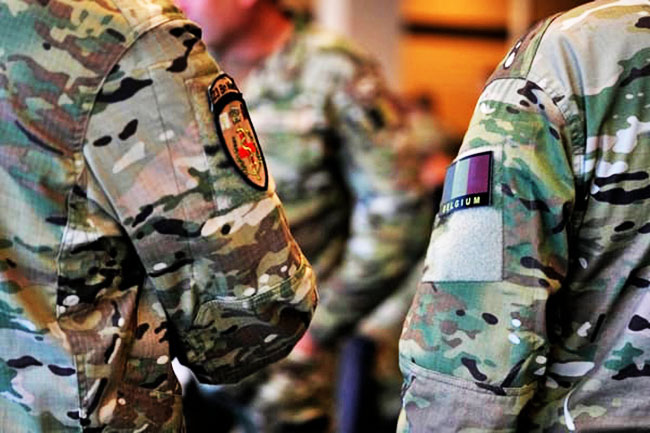Over the past 15 years,
the European Union
has evolved into an increasingly authoritarian and
anti-democratic edifice.
Especially under
von der Leyen, the
European Commission has used crisis after crisis to increase its
influence over areas of competence that had previously been
considered the preserve of national governments,
from financial
budgets and health policy to foreign affairs and defence - at
the expense of democratic control and accountability.
During the past three years, Europe has become increasingly
militarized, as von der Leyen seized on the Ukraine crisis to
place herself at the lead of the bloc's response, effectively
transforming the Commission, and the EU as a whole, into an
extended arm of
NATO.
Now, under the guise of the "Russian threat",
von der Leyen intends to dramatically accelerate this process of
centralization of the bloc's politics...
She has already proposed, for instance,
purchasing weapons collectively on behalf of EU member states -
following the same "I buy, you pay" model used for the
Covid-19
vaccine procurement.
This would effectively give the Commission
control over the entire military-industrial complex of EU
countries - the latest in a long list of institutional coups
spearheaded by Brussels.
This is about more than just ramping up the production of
weapons.
Brussels is pursuing a comprehensive, society-wide
militarization.
This ambition is reflected in the
increasingly strict enforcement of EU-NATO foreign policy - from
the threats and pressure used to coerce unaligned leaders such
as Viktor Orbán in Hungary and Roberto Fico in
Slovakia, into compliance to the outright banning of political
candidates who are critical of
the EU and
NATO, as witnessed in
Romania.
In the years ahead, this militarized approach is set to become
the dominant paradigm in Europe, as all spheres of life -
political, economic, social, cultural and scientific - will be
subordinated to the overarching goal of national, or rather
supranational, security.
This will be used to justify increasingly
repressive and authoritarian policies, with the threat of
"Russian interference" invoked as a catch-all pretext for
everything,
from online censorship to the suspension of
fundamental civil liberties - as well as, of course, the further
centralization and verticalization of EU authority - especially
given the inevitable backlash these policies are bound to
generate...


